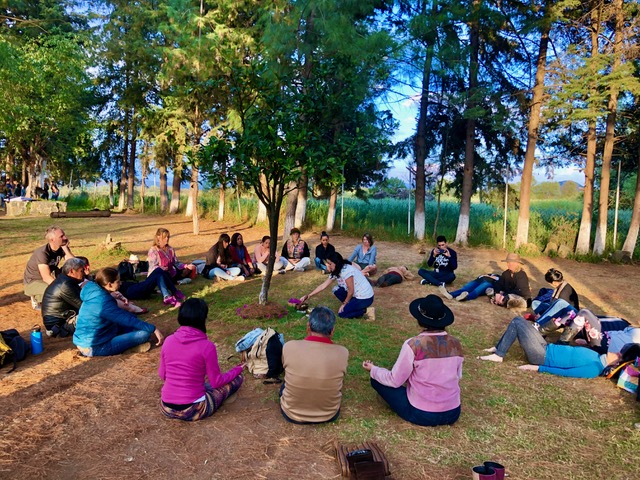They say the past doesn’t predict the future. But upon reviewing the following, something has to be done about best practices in design and development in order to change the future health of this planet.
In 2009, Kristen Victor took a giant leap of faith and launched her company,
Sustainability
Matters, with one primary focus – addressing the unsustainable practices that have been part of the industrial complex. She now educates the design and development community about best practices for sustainable growth. Here’s the story of Sustainability Matters.
Let’s take a look:
Eight million tons of plastic flow into the ocean every year, and 3.6 billion of the global
population live in potentially water-stressed areas. This is expected to reach 4.8 to 5.7 billion by 2050.
Pulp and paper is the third largest industrial polluter to air, water, and land in both Canada and the United States, and releases well over 100 million kg of toxic pollution each year.
Nine out of 10 people worldwide breathe polluted air.
An estimated seven million people die every year from air pollution, with almost 90 percent of deaths occurring in countries of low and middle incomes.
The food wasted by the United States and Europe alone could feed the world three times over.
According to recent studies, humanity could save $26 trillion by 2030 through a global shift to sustainable development.
Nearly half (48%) of U.S. consumers say they would definitely or probably change their consumption habits to reduce their impact on the environment.
Growing up along the coast in Southern California, Kristen Victor appreciated the beauty of her surrounding environment – the sun, surf, and ever flowing waters of the Pacific Ocean. Nature was just outside her front door.
Today, development and urban sprawl has put the global community and the environment, along with our physical health, under attack.
The year is 2009. Victor decides to take a stand. Upon completing a biology degree from
Whittier College and LEED Accreditation, she launches her company, Sustainability Matters,
with a mission to change community development standards for the better, one standard at a time.
By 2012, Victor was using a model called
EcoDistricts to help communities, cities, and
neighborhoods address business and residential development issues – issues that can have a
serious effect on the socio-cultural and environmental outcomes of the surrounding regions including the conservation and reuse of potable water, energy efficiency, , multi-modal transportation, food security, and equitable housing development.
Victor was among the early stakeholders involved with EcoDistricts, getting on board in 2014, driven by her own commitment to change local development standards in order to protect the environment and empower regional communities to self-determine how their communities are designed, starting at the local level.
”I was curious to evaluate programming on different neighborhood development certifications, and found EcoDistricts to be exemplary in prioritizing positive outcomes in equity, resilience and climate protection, building vibrant, thriving places where all can live, work and play.”
Starting her firm, Victor’s idea was to create a data analytic technology integration firm for the building industry, helping those within the industry understand and analyze the impacts of design and development, hoping to instruct and initiate best practices for utilizing sustainable technologies. As a result, her firm evolved and today plays a key role in leading “regenerative future” workshops for not only the North American market, but also for the international market, most recently in central Mexico.
This past January, Victor and her team led and completed the 1st annual global Catalyzing
Communities for A Regenerative Future workshop in Patzcuaro, Mexico, where leaders and participants aligned the Paris Agreement on Climate Control and the UN’s Sustainable Development Goals with Mexico’s sustainable development policies and incentives. The outcome has been a catalyst for Patzcuaro’s unique plan for sustainable regenerative growth in the years ahead. And as Victor says, it is a plan to be replicated as a global community model.




No comments